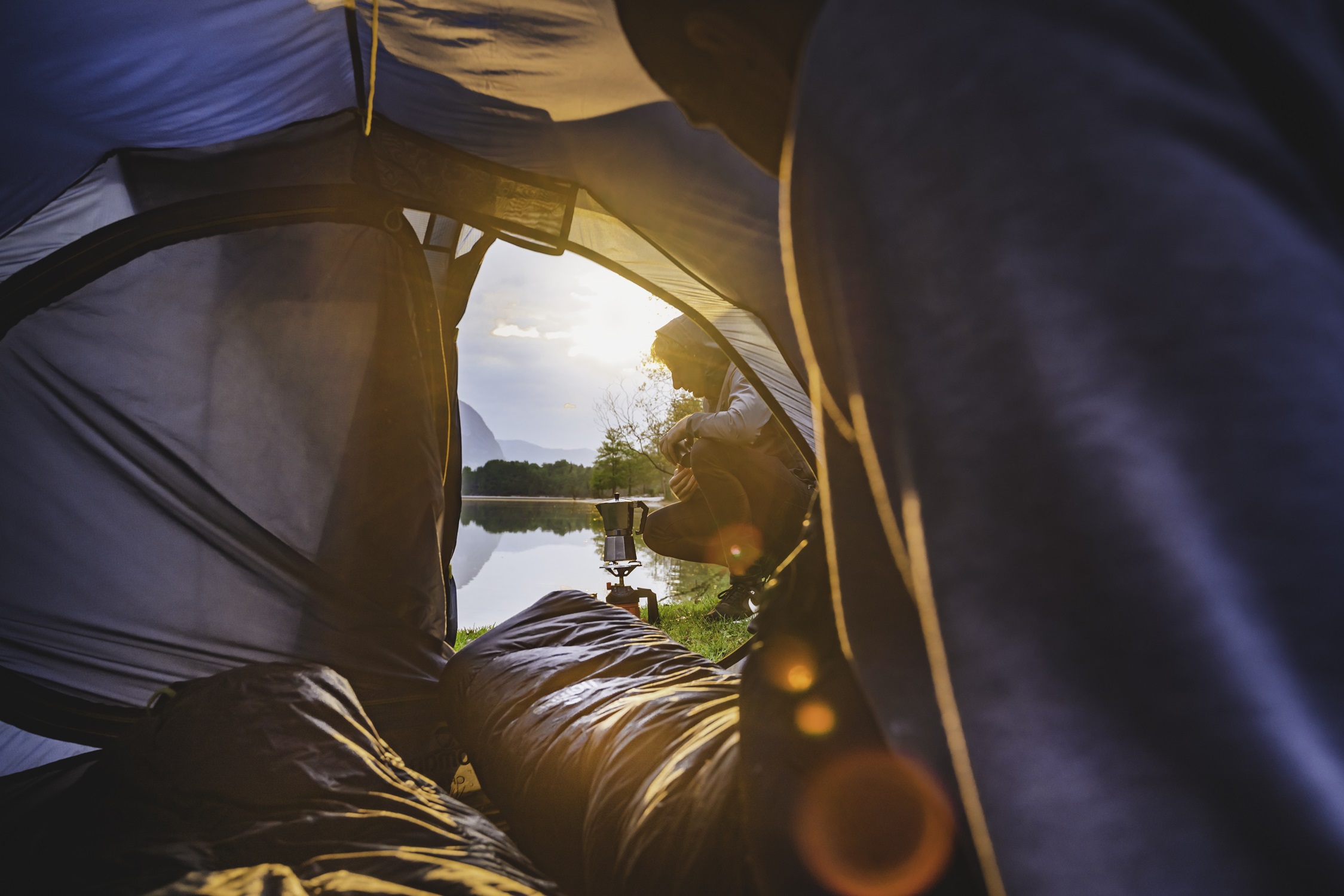A beginners’ guide to Zero Waste Camping
Waste-free camping - is it possible? Yes it is! With the right preparation and a good dose of adaptability you can drastically reduce your waste rate during your camping trip. The easy and comfortable options will have to be put aside for a while, but once you get used to them and find the right alternatives you may never want to go back!
Below are tips, tricks and guidelines you can use to make your zero-waste camping trip a success:
1. Choose the right camping gear
It all starts with choosing quality camping gear. This alone contributes immensely to your goal of zero-waste camping (and to your camping experience!).
Although it may seem tempting to buy your outdoor gear as cheaply as possible, the well-known adage is unfortunately true: cheap is expensive. Make sure your camping gear can last a long time and is therefore durable. If your gear is damaged, have it repaired instead of buying new. Not only will you save money, but you will also save the planet from unnecessary waste. If you have items that you no longer use, don't throw them away. Instead, pass it on to someone who can still use it or who might really need it! A great example is Sheltersuit, a company that makes "sheltersuits" for the homeless.
For us, reuse is also one of the most important sustainability pillars: at NOMAD, we believe that making products that last is the most powerful way to minimize our impact.

2. Plan your meals
This section requires a little extra preparation. Waste-free eating is always a challenge, especially if you like to buy prepackaged snacks. Fortunately, packaging-free alternatives are starting to gain popularity as it becomes easier and easier to buy in bulk.
The key word with this section is: plan! First, think about what you're going to eat for breakfast, lunch and dinner each day and look where you can combine meals. One days supper can be next days lunch! Then make a simple shopping list and stock up before you hit the road. Bring your own container or jar to the store, that way you have avoided using plastic again.
Also, make sure you bring reusable cutlery from home instead of disposable plastic cutlery. If you're traveling lightweight, there are always great reusable alternatives like our Spork!
Finally, collect all your biodegradable food waste in a separate container or trash can so you can use it as compost in your garden. Nowadays you can buy so-called odorless Bokashi fermentation buckets at various places, with which - as you probably already suspected - you can ferment biodegradable waste. Bokashi (Japanese) is a term used for the process that converts food into a soil improver through fermentation. Worthwhile!
If you don't have a garden or can't travel with an extra container, make sure you leave your green waste in the appropriate bins.
3. Take the time to pick out hygiene products
You can find sustainable alternatives on the market for all types of soaps nowadays. Replace your plastic bottles of fluid shampoo, body wash and dishwashing liquid with solid bars. Go for solid deodorant bars instead of sprays or roll-ons, replace tampons and pads with a menstrual cup and take toothpaste tablets instead of a tube. Detergent to wash your clothes can also be purchased sustainably, think refillable bottles, laundry strips, soap flakes, powder in cartons or... make it yourself! Even sunscreen and bug spray have sustainable alternatives. These options may not be completely waste-free, but you can make sure you minimize the use of plastic and choose recyclable packaging.
This list may sound intimidating, but every little bit helps. Start small and replace as much as you feel comfortable with.
And, what about toilet paper? Most campsites have toilets, of course. If you go wild camping, bring white, unscented toilet paper and a scoop. If you can, take the toiletpaper back with you to your campsite or dispose of in en-route.
4. Find alternatives for single-use products
Single-use products often offer the greatest convenience. Unfortunately, however, they are the biggest contributors to waste in everyday life. It may take some effort at first to replace them with reusable or waste-free products, but once you start replacing them step by step you will find that it is perfectly doable.
This applies to all disposable items, such as kitchen utensils, cups, plastic bags, plastic straws, disposable packaging, plastic water bottles and so on. Replace your plastic wrap with reusable beeswax wraps, your plastic straws with bamboo or steel straws, your plastic knife and fork with bamboo utensils and your plastic bottles with reusable bottles.
There are countless options when it comes to alternatives to disposables, you name it. Maybe you'll apply your new zero-waste camping style to your everyday life too!
Hopefully the above tips and tricks will help you prepare for your zero-waste camping trip.
